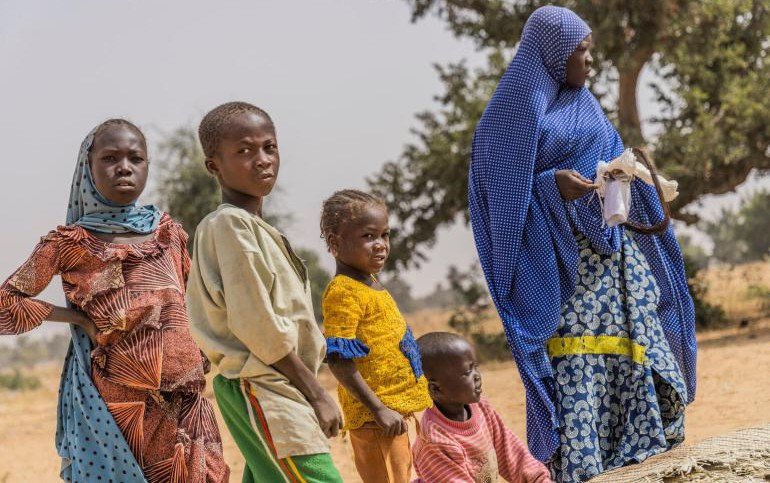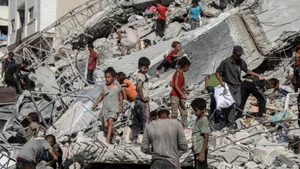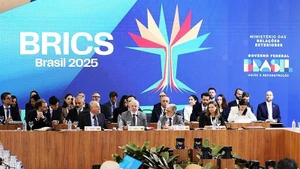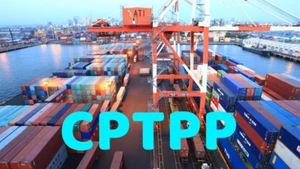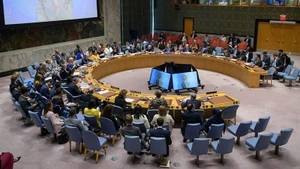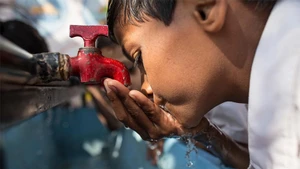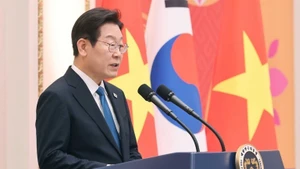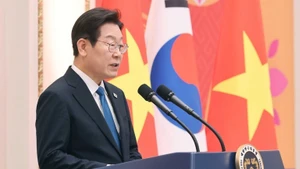The United Nations Children's Fund (UNICEF) and the World Bank (WB) recently released a report showing that the COVID-19 pandemic has slowed progress in helping children escape poverty, with 333 million children worldwide still living in extreme poverty. Efforts to help children escape poverty have been affected and put behind schedule, forcing 17% of the world's children to live on a temporary basis.
UNICEF Executive Director Catherine Russell said COVID-19, conflicts, climate change, and economic shocks have slowed the world's progress in eradicating poverty, leaving millions of children living in extreme poverty. This reality is a challenge to the UN’s goal of completely ending extreme child poverty by 2023.
WB’s senior official Lopez Calva expressed concern about the situation of 333 million children living in extreme poverty, deprived not only of their basic needs but also dignity, opportunity, and hope.
The Africa south of the Sahara is currently the most "low-lying" area in the world in terms of ensuring social security for children. According to UNICEF statistics, for every 100 children in Southern Sahara, up to 40 are in extreme poverty. In recent years, a series of negative impacts such as rapid population growth, the raging COVID-19 pandemic, conflict, and climate change have aggravated extreme poverty among children in this area.
In addition to living in poverty, millions of children have not enjoyed the basic right to go to school.
According to statistics from the UN High Commissioner for Refugees (UNHCR), more than half of the 14.8 million refugee children of school age in the world have not gone to school.
The UNHCR spokesman William Spindler said the 2023 UNHCR Refugee Education Report revealed that by the end of 2022, the number of school-aged refugees jumped nearly 50% from the 10 million recorded in the previous earlier.
According to UNHCR representatives, with one-fifth of refugees living in 46 least developed countries and more than three-quarters living in low- and middle-income countries, education costs have been becoming a burden for poor and vulnerable groups.
Faced with this current situation, UN Secretary General Antonio Guterres stressed that there are currently 224 million children and adolescents around the world in need of urgent educational support due to crises such as conflicts, epidemics, and natural disasters, including about 72 million children who are being deprived of their right to go to school.
The increasing number of child migrants has also been warned by international organisations. UNICEF emphasised that the number of children in Latin America and the Caribbean leaving the country is at an all-time high.
According to UNICEF, in just the first six months of 2023, as many as 40,000 children have had to cross the dangerous Darien Gap, separating Central and South America, to escape gang violence, instability, poverty, and natural disasters raging in their homelands. This number is equal to the whole of 2022 and has skyrocketed compared to the figure of 29,000 in 2021.
The report also showed that children make up 25% of all Latin American and Caribbean migrants, equivalent to the Sub-Saharan region and much higher than the 13% worldwide. UNICEF Latin America and the Caribbean Regional Director Garry Conille warned that on the journey to the "promised land", children face many unpredictable dangers such as disease, abuse, and even loss of their lives.
International organisations call on countries to prioritise addressing child poverty, implementing stronger humanitarian assistance, and adopting effective measures such as expanding social welfare programmes to protect the rights and future of children.
